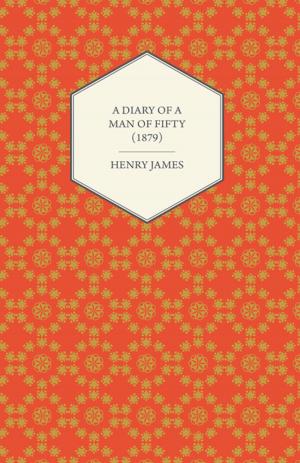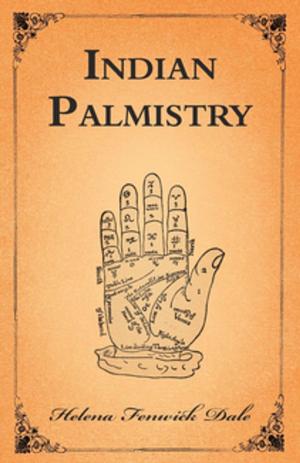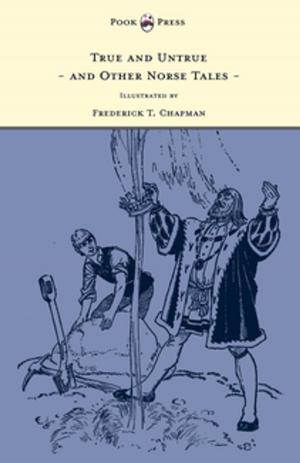| Author: | George Sanger | ISBN: | 9781447497189 |
| Publisher: | Read Books Ltd. | Publication: | April 16, 2013 |
| Imprint: | Seton Press | Language: | English |
| Author: | George Sanger |
| ISBN: | 9781447497189 |
| Publisher: | Read Books Ltd. |
| Publication: | April 16, 2013 |
| Imprint: | Seton Press |
| Language: | English |
SEVENTY YEARS A SHOWMAN- Sanger and His Times by Kenneth Grahame. First published in 1926. INTRODUCTION: SANGER AND HIS TIMES by KENNETH GRAHAME. RETIREMENT and reminiscence are apt to trot in harness together, and so, when Mr. George Sanger, the great showman, so familiar, by name at least, to the youth of the last generation, retired from the circus business in 1905, he proceeded to set down the simple yet moving annals of his past career, with the same calm courage with which he would draw the aching tooth of a favourite elephant. Published in book form in 1910, under the title of Seventy Years a Showman, these memoirs hardly attracted at the time all the no tice they really merited. It is to be hoped that this re issue the book has been many years out of print may receive fuller attention, for his story is not only excellently and graphically written, and packed with yarns of the most vivid character set forth in a per fectly natural and unexaggerated manner, but it pro vides a reel, so to speak, of moving-pictures illustrative of a certain period that extending from the early thirties to the end of the last century during which the rural and provincial life of England underwent a transformation as complete as perhaps-any previous period of seventy years could show. It covers, too, the whole period of Dickens' work, and that of many Introduction, another of lesser fame, all busy depicting the Early Victorian world in its every phase and once more, as we read, many of their characters seem to start into life again, each in his habit as he lived, in the faithful jottings of this simple and unlettered showman. George Sangers parents wfcre Wiltshire people his father, press-ganged at eighteen, served ten years afloat, and fought and was severely wounded in the Victory at Trafalgar from which event, and his con sequent retirement on a pension of 10 per annum, we date his entry into the show business, with a self-made peep-show he could carry on his back. As described by his son, he seems to have been a man of fine char acter, and his adventures, intertwined as they are with the writers early years, form as good reading as any part of the book. But the father, though reaching out at times in this direction and that, remained faithful in the main to the peep-show with which he had first challenged fortune. It was young George who was always the climber, the aspirant, the seeker after new things. While still a boy, be must needs start his own little show, which, composed of performing canaries, redpolls and white mice, strengthened later by two tame hares, bore in it the seed of the mighty circuses and menageries that were to follow. At eighteen he was on the road with a travelling van of his own when about twenty-six he entered the great circus world, and passed from success to success, their cul mination being the purchase of the famous Astleys Theatre in 187 1. Followed his Continental tours and triumphs, during which, as he used to boast, his cir cuses travelled the roads of every country in Europe except Russia and thereafter he was not so much a man as an institution and a British institution too. Mr. Sanger, like a good showman, married in the profession, choosing for his bride the popular Lion Queen of a rival establishment, somewhat to the dis gust of the rival establishment, who evidently held, not unnaturally, that showmen ought to marry their own Lion Queens, instead of poaching on those of other people. She made as good a wife as she had made a Lion Queen who dares to say that an early training is ever entirely wasted and when, after forty-eight years of happy married life, he lost her, his book pays touching tribute to all that she had been to him, both in solid worth and in affection. Lovers to the last, he says and that is saying not a little.
SEVENTY YEARS A SHOWMAN- Sanger and His Times by Kenneth Grahame. First published in 1926. INTRODUCTION: SANGER AND HIS TIMES by KENNETH GRAHAME. RETIREMENT and reminiscence are apt to trot in harness together, and so, when Mr. George Sanger, the great showman, so familiar, by name at least, to the youth of the last generation, retired from the circus business in 1905, he proceeded to set down the simple yet moving annals of his past career, with the same calm courage with which he would draw the aching tooth of a favourite elephant. Published in book form in 1910, under the title of Seventy Years a Showman, these memoirs hardly attracted at the time all the no tice they really merited. It is to be hoped that this re issue the book has been many years out of print may receive fuller attention, for his story is not only excellently and graphically written, and packed with yarns of the most vivid character set forth in a per fectly natural and unexaggerated manner, but it pro vides a reel, so to speak, of moving-pictures illustrative of a certain period that extending from the early thirties to the end of the last century during which the rural and provincial life of England underwent a transformation as complete as perhaps-any previous period of seventy years could show. It covers, too, the whole period of Dickens' work, and that of many Introduction, another of lesser fame, all busy depicting the Early Victorian world in its every phase and once more, as we read, many of their characters seem to start into life again, each in his habit as he lived, in the faithful jottings of this simple and unlettered showman. George Sangers parents wfcre Wiltshire people his father, press-ganged at eighteen, served ten years afloat, and fought and was severely wounded in the Victory at Trafalgar from which event, and his con sequent retirement on a pension of 10 per annum, we date his entry into the show business, with a self-made peep-show he could carry on his back. As described by his son, he seems to have been a man of fine char acter, and his adventures, intertwined as they are with the writers early years, form as good reading as any part of the book. But the father, though reaching out at times in this direction and that, remained faithful in the main to the peep-show with which he had first challenged fortune. It was young George who was always the climber, the aspirant, the seeker after new things. While still a boy, be must needs start his own little show, which, composed of performing canaries, redpolls and white mice, strengthened later by two tame hares, bore in it the seed of the mighty circuses and menageries that were to follow. At eighteen he was on the road with a travelling van of his own when about twenty-six he entered the great circus world, and passed from success to success, their cul mination being the purchase of the famous Astleys Theatre in 187 1. Followed his Continental tours and triumphs, during which, as he used to boast, his cir cuses travelled the roads of every country in Europe except Russia and thereafter he was not so much a man as an institution and a British institution too. Mr. Sanger, like a good showman, married in the profession, choosing for his bride the popular Lion Queen of a rival establishment, somewhat to the dis gust of the rival establishment, who evidently held, not unnaturally, that showmen ought to marry their own Lion Queens, instead of poaching on those of other people. She made as good a wife as she had made a Lion Queen who dares to say that an early training is ever entirely wasted and when, after forty-eight years of happy married life, he lost her, his book pays touching tribute to all that she had been to him, both in solid worth and in affection. Lovers to the last, he says and that is saying not a little.















